
Kinetis® K53-100 MHz, USB, Segment LCD, Ethernet Microcontrollers (MCUs) based on Arm® Cortex®-M4 Core
Sign in for a personalized NXP experience.
Click over video to play

This is a modal window.
Beginning of dialog window. Escape will cancel and close the window.
End of dialog window.
This is a modal window. This modal can be closed by pressing the Escape key or activating the close button.
This is a modal window. This modal can be closed by pressing the Escape key or activating the close button.

This is a modal window.
Beginning of dialog window. Escape will cancel and close the window.
End of dialog window.
This is a modal window. This modal can be closed by pressing the Escape key or activating the close button.
This is a modal window. This modal can be closed by pressing the Escape key or activating the close button.

This is a modal window.
Beginning of dialog window. Escape will cancel and close the window.
End of dialog window.
This is a modal window. This modal can be closed by pressing the Escape key or activating the close button.
This is a modal window. This modal can be closed by pressing the Escape key or activating the close button.

This is a modal window.
Beginning of dialog window. Escape will cancel and close the window.
End of dialog window.
This is a modal window. This modal can be closed by pressing the Escape key or activating the close button.
This is a modal window. This modal can be closed by pressing the Escape key or activating the close button.

This is a modal window.
Beginning of dialog window. Escape will cancel and close the window.
End of dialog window.
This is a modal window. This modal can be closed by pressing the Escape key or activating the close button.
This is a modal window. This modal can be closed by pressing the Escape key or activating the close button.

This is a modal window.
Beginning of dialog window. Escape will cancel and close the window.
End of dialog window.
This is a modal window. This modal can be closed by pressing the Escape key or activating the close button.
This is a modal window. This modal can be closed by pressing the Escape key or activating the close button.
The Kinetis® K series MCU portfolio offers the broadest selection of pin, peripheral- and software-compatible MCU families based on the Arm® Cortex®-M4 core. The Kinetis K64 120 MHz MCUs feature:

Note: To see the product features close this window.
9 results
Include 0 NRND
Part | Order | CAD Model | Status | Core Type | Operating Frequency [Max] (MHz) | SRAM (kB) | Flash (kB) | EEPROM (kB) | UART | SPI | I2C | USB Controllers | CAN | Ethernet | GPIO | ADC (16 bit) | 16-bit PWM | Security | Supply Voltage [min] (V) | Supply Voltage [max] (V) | Package Type | Package Termination Count | Package Dimensions (LxWxZ (mm)) | Package Pitch (mm) | Ambient Operating Temperature (Min to Max) (℃) |
|---|---|---|---|---|---|---|---|---|---|---|---|---|---|---|---|---|---|---|---|---|---|---|---|---|---|
Active | Arm Cortex-M4 | 120 | — | 1024 | — | — | — | 3 | 1 | 1 | 1 | 100 | 2 | 1 | CA, CRC, RNG | 1.71 | 3.6 | — | — | — | — | -40 to 85 | |||
Active | Arm Cortex-M4 | 120 | 256 | 1024 | — | 6 | 3 | 3 | 1 | 1 | — | 83 | 2 | 20 | CA, CRC, RNG | 1.71 | 3.6 | XFBGA121 | 121 | 8 x 8 x 0.43 | 0.65 | -40 to 105 | |||
Active | Arm Cortex-M4 | 120 | 256 | 1024 | — | 5 | 3 | 3 | 1 | 1 | — | 66 | 2 | 20 | CA, CRC, RNG | 1.71 | 3.6 | LQFP100 | 100 | 14 x 14 x 1.4 | 0.5 | -40 to 105 | |||
Active | Arm Cortex-M4 | 120 | 256 | 1024 | — | 6 | 3 | 3 | 1 | 1 | — | 100 | 2 | 20 | CA, CRC, RNG | 1.71 | 3.6 | LQFP144 | 144 | 20 x 20 x 1.4 | 0.5 | -40 to 105 | |||
Active | Arm Cortex-M4 | 120 | 256 | 1024 | — | 6 | 3 | 3 | 1 | 1 | — | 100 | 2 | 20 | CA, CRC, RNG | 1.71 | 3.6 | LBGA144 | 144 | 13 x 13 x 1.46 | 1.0 | -40 to 105 | |||
Active | Arm Cortex-M4 | 120 | 256 | 640 | 0 | 6 | 3 | 3 | 1 | 1 | — | 86 | 2 | 20 | CA, CRC, RNG | 1.71 | 3.6 | XFBGA121 | 121 | 8 x 8 x 0.43 | 0.65 | -40 to 105 | |||
Active | Arm Cortex-M4 | 120 | 256 | 640 | 0 | 5 | 3 | 3 | 1 | 1 | — | 66 | 2 | 20 | CA, CRC, RNG | 1.71 | 3.6 | LQFP100 | 100 | 14 x 14 x 1.4 | 0.5 | -40 to 105 | |||
Active | Arm Cortex-M4 | 120 | 256 | 640 | 0 | 6 | 3 | 3 | 1 | 1 | — | 100 | 2 | 20 | CA, CRC, RNG | 1.71 | 3.6 | LQFP144 | 144 | 20 x 20 x 1.4 | 0.5 | -40 to 105 | |||
Active | Arm Cortex-M4 | 120 | 256 | 640 | 0 | 6 | 3 | 3 | 1 | 1 | — | 100 | 2 | 20 | CA, CRC, RNG | 1.71 | 3.6 | LBGA144 | 144 | 13 x 13 x 1.46 | 1.0 | -40 to 105 |
Quick reference to our documentation types.
1-10 of 78 documents
Compact List
There are no results for this selection.
Sign in to access authorized secure files. Learn more about secure access rights.
Please wait while your secure files are loading.
1-10 of 78 documents
Compact List
5 design files
Sign in to access authorized secure files. Learn more about secure access rights.
Please wait while your secure files are loading.
5 design files
1-5 of 17 hardware offerings

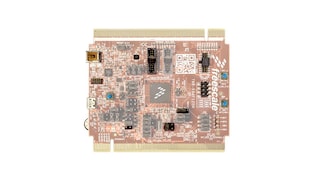
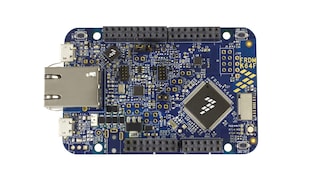
Additional hardware available. View our featured partner solutions.
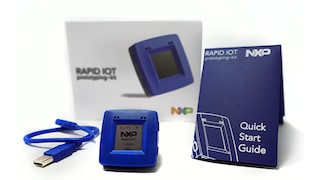
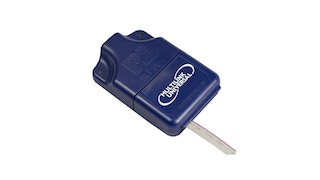
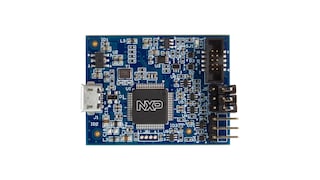
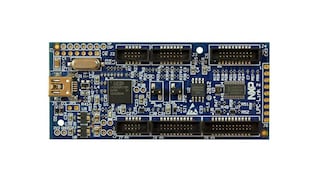
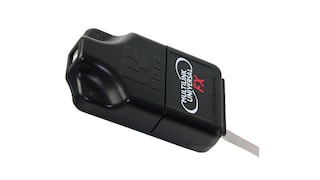
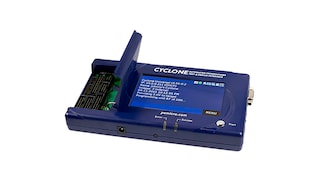
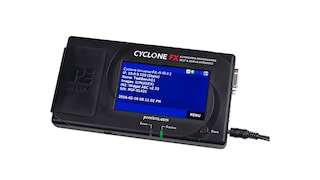
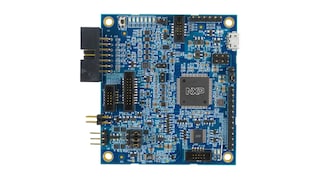



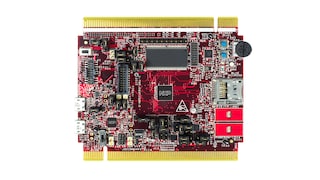
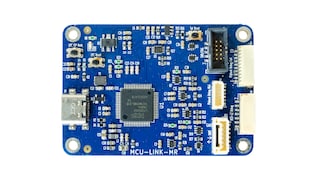

Sign in to access authorized secure files. Learn more about secure access rights.
1-5 of 12 hardware offerings
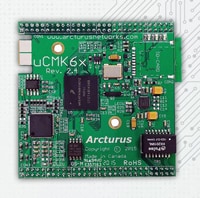





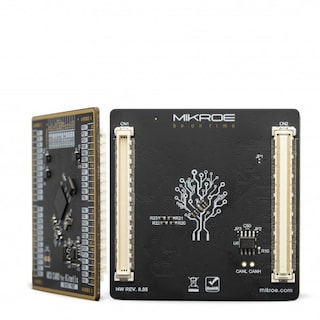





To find additional partner offerings that support this product, visit our Partner Marketplace.
1-5 of 17 hardware offerings



Additional hardware available. View our featured partner solutions.














Quick reference to our software types.
1-5 of 14 software files
Additional software available. View our featured partner solutions.
Note: For better experience, software downloads are recommended on desktop.
Sign in to access authorized secure files. Learn more about secure access rights.
Please wait while your secure files are loading.
1-5 of 52 software offerings
To find additional partner offerings that support this product, visit our Partner Marketplace.
1-5 of 14 software files
Additional software available. View our featured partner solutions.
Note: For better experience, software downloads are recommended on desktop.
1-5 of 18 engineering services



.svg)














There are no results for this selection.
There are no results for this selection.
To find additional partner offerings that support this product, visit our Partner Marketplace.
5 trainings
Additional trainings are available. View our featured partner trainings.
5 trainings
Additional trainings are available. View our featured partner trainings.
1-5 of 17 trainings
To find additional partner offerings that support this product, visit our Partner Marketplace.
There are no recently viewed products to display.

Help us improve your experience on our site. We invite you to take our five-question survey.